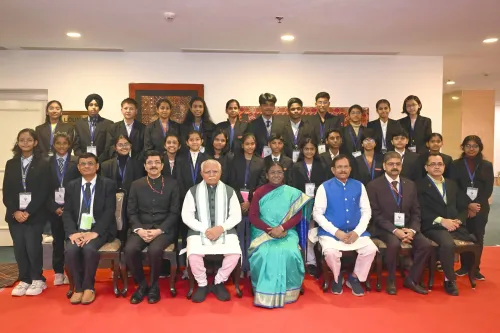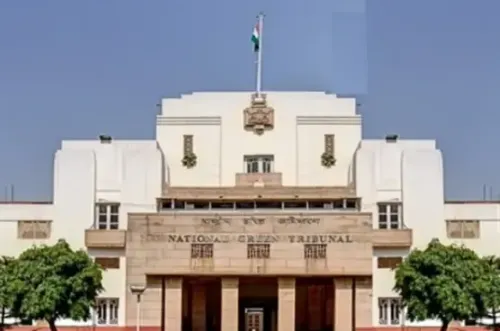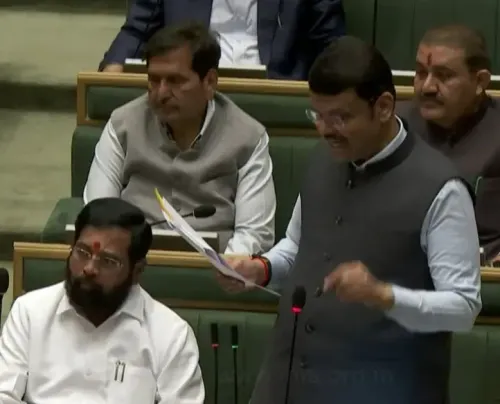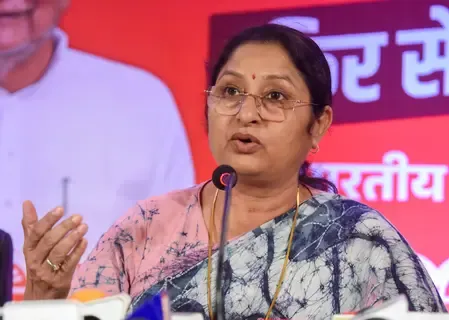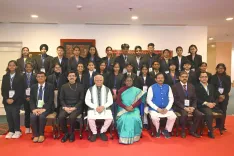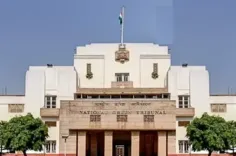Waqf JPC Chair Criticizes AIMPLB's Protest Threat
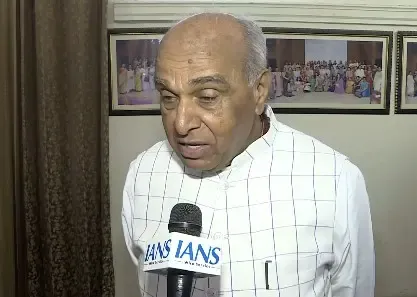
Synopsis
Key Takeaways
- AIMPLB protests against Waqf Bill 2024.
- Jagdambika Pal criticizes AIMPLB's warning.
- Internal community dissent against AIMPLB.
- JPC report created after stakeholder consultations.
- Waqf Bill aims for property protection and reforms.
New Delhi, March 17 (NationPress) As the All India Muslim Personal Law Board (AIMPLB) escalated its demonstrations against the Waqf (Amendment) Bill, 2024, Jagdambika Pal, the Chairman of the Joint Parliamentary Committee (JPC), condemned the Muslim organization for its caution regarding a potential "Shaheen Bagh-like protest", labeling it an effort to create division among the populace.
AIMPLB organized another protest at Jantar Mantar in New Delhi, claiming that the government intends to appropriate Waqf properties. The demonstration saw participation from eleven opposition parties, including Congress. AIMIM chief Asaduddin Owaisi and Congress leader Salman Khurshid also joined the protest.
Nevertheless, AIMPLB's tactics have faced backlash from within the community, as Maulana Shahabuddin Razvi criticized the board for being dominated by political agendas instead of concentrating on genuine Muslim concerns.
In response to AIMPLB's position, Pal informed IANS, "They have been opposing this bill since the outset. Regardless, we invited the All India Muslim Personal Law Board to share their insights before the Joint Parliamentary Committee. Owaisi Sahab was also present. We listened to all perspectives for 3-4 hours and documented the opinions of every participant from various states."
Previously, AIMPLB member Syed Qasim Rasool Ilyas had warned, "If the bill is enforced, the entire nation will see a protest akin to Shaheen Bagh."
It is noteworthy that Ilyas is the father of former JNU scholar and activist Umar Khalid, who has been incarcerated since September 2020 under the Unlawful Activities Prevention Act (UAPA) in the larger conspiracy case related to the 2020 North-East Delhi riots.
Condemning such statements, Pal maintained that the JPC report was developed following thorough consultations.
"We took into account every stakeholder's viewpoint before finalizing the report. This law is designed to safeguard Waqf properties from misuse and ensure that benefits reach underprivileged Muslims, women, and widows. The bill has not yet been passed, and they are already inciting a Shaheen Bagh-like situation. This is a calculated effort to divide the community, similar to the debates surrounding Article 370 and Triple Talaq," he stated.
Pal highlighted the favorable outcomes of past government actions, asserting, "Today, Jammu and Kashmir is experiencing a tourism boom and economic growth. Likewise, the abolition of Triple Talaq has granted minority women a newfound sense of security, and they express gratitude to PM Modi for this monumental decision."
Defending the democratic process surrounding the bill, he remarked, "In a democracy, law-making authority rests with the elected representatives of the populace. The government introduced this bill and had the majority to pass it directly in Parliament."
However, instead of hastily pushing it through, Parliamentary Affairs Minister Kiren Rijiju suggested referring it to a Joint Parliamentary Committee. This was intended to ensure that Muslim organizations nationwide, including those currently protesting, were heard, creating a fair and balanced law.
The Waqf (Amendment) Bill, 2024 aims to implement reforms such as digitization, improved audits, transparency, and legal mechanisms to reclaim unlawfully occupied properties.
While the government contends that it seeks to protect Waqf assets and support the underprivileged, the opposition and AIMPLB remain resolute in their resistance, setting the stage for ongoing conflicts regarding the bill.


